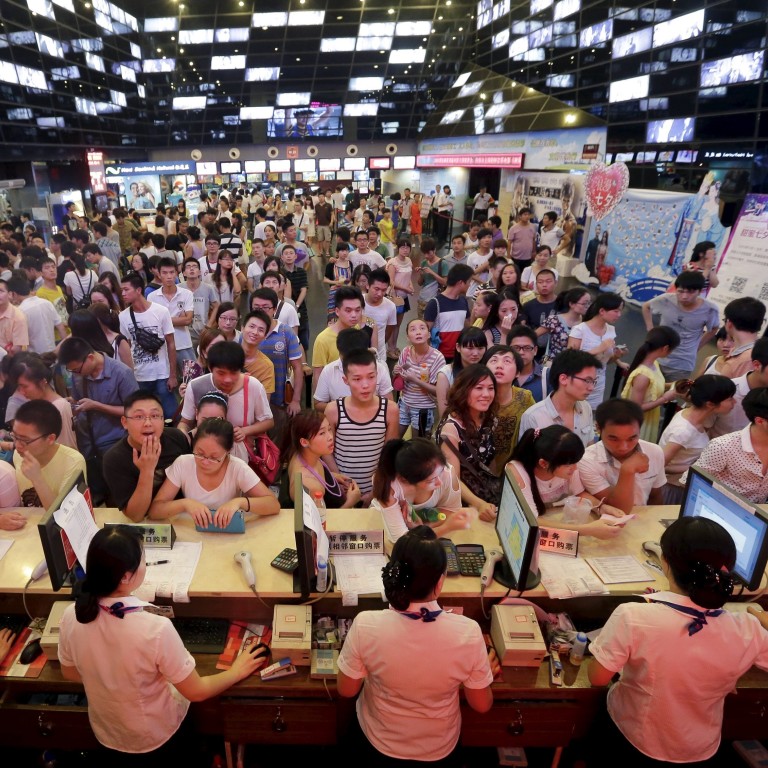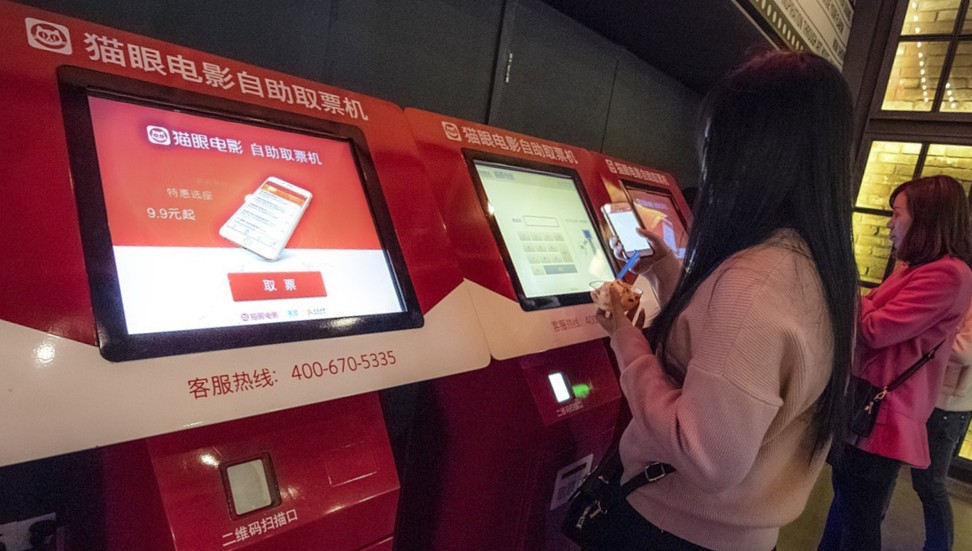
China’s largest movie ticketing app Maoyan, backed by Tencent, to raise up to US$350 million in Hong Kong IPO
- Maoyan is backed by Tencent, Beijing Enlight Media, and Meituan-Dianping
- It rivals Alibaba’s Taopiaopiao in China’s online ticketing, where the two account for more than 90 per cent of market share
Maoyan Entertainment, China’s largest movie ticketing app backed by the country’s biggest social network operator and games publisher, is planning to raise funds through an initial public offering in Hong Kong.
The Beijing-based company, with Tencent Holdings as its second-biggest shareholder, plans to sell 132.377 million shares of between HK$14.8 and HK$20.4 per share, raising up to HK$2.7 billion (US$350 million) in capital, according to a term sheet obtained by the South China Morning Post.
Maoyan’s fundraising plan comes after a 14 per cent decline in Hong Kong’s benchmark stock index last year. The company, which helped fund the latest Transformers movie, was in talks with investment bankers to raise as much as US$1 billion in capital, according to a January 2018 Bloomberg report that cited unnamed people with knowledge of the matter.
The latest fundraising attempt features Bank of America-Merrill Lynch and Morgan Stanley as joint sponsors.
The company will start taking orders from institutional investors on Friday and is scheduled to list on January 31. Up to 10 per cent of the offering will be open to retail investors in Hong Kong, running from next Monday to Thursday.
Chinese films overtake Hollywood at the box office in the first half
The upcoming IPO will be anchored by two cornerstone investors, with IMAX Hong Kong agreeing to buy US$15 million of shares, while Welight Capital has pledged US$3 million.
Tencent owns 16.3 per cent of Maoyan, the second-largest shareholder, according to a prospectus released last September. Beijing Enlight Media is the largest stakeholder, holding 48.8 per cent. Meituan Dianping owns 8.6 per cent.
China’s movie industry boasts the world’s largest box office, where 80 per cent of movie tickets were sold online in 2017, according to an estimation by iResearch Consulting Group. The country’s ticket receipts may more than double in combined takings to 121.7 billion yuan (US$18 billion/HK$141 billion) by 2022, from 55.9 billion yuan in 2017, Maoyan said.

Maoyan has 130 million monthly active users in the first half of 2018, according to its prospectus. Theatres in more than 600 Chinese cities, or 95 per cent of the total pool, used Maoyan to sell tickets online in the first half of 2018, giving the company 60 per cent of the market, while Taopiaopiao, a unit of this newspaper’s owner Alibaba Group Holding, took up another 30 per cent. The CEO of Alibaba Picture Fan Luyuan said earlier last year that Taopiaopiao would increase investments and aims to become the largest ticketing app in China.
Producers yank China’s most expensive movie from screens after three meagre days at the box office
Despite its stranglehold on the market, Maoyan had not been profitable for three years, with its 2017 loss more than doubling to 1.3 billion yuan, from 508 million yuan in 2016. Losses piled up to 144 million yuan in the first nine months of 2018, according to Maoyan.
Established in 2012 as a business unit of Meituan, the company was spun off in 2016 and acquired smaller rival Beijing Weiying Technology last September to form a partnership with Tencent to become the exclusive entertainment ticketing channel on Tencent’s social network platform.
The company said in the investor presentation document that it hopes to expand its business beyond online movie ticketing to the production of movies and TV shows. Since 2016, it has participated in the production of several blockbuster movies, such as Dying to Survive, and Monster Hunt 2 .
According to an investor presentation document by Maoyan, the company plans to use 30 per cent of the IPO proceeds to integrate and improve platform capabilities, 30 per cent for research and development and technology infrastructure, 30 per cent of potential investments and acquisitions for expansion, and the rest for working capital and general corporate purposes.

